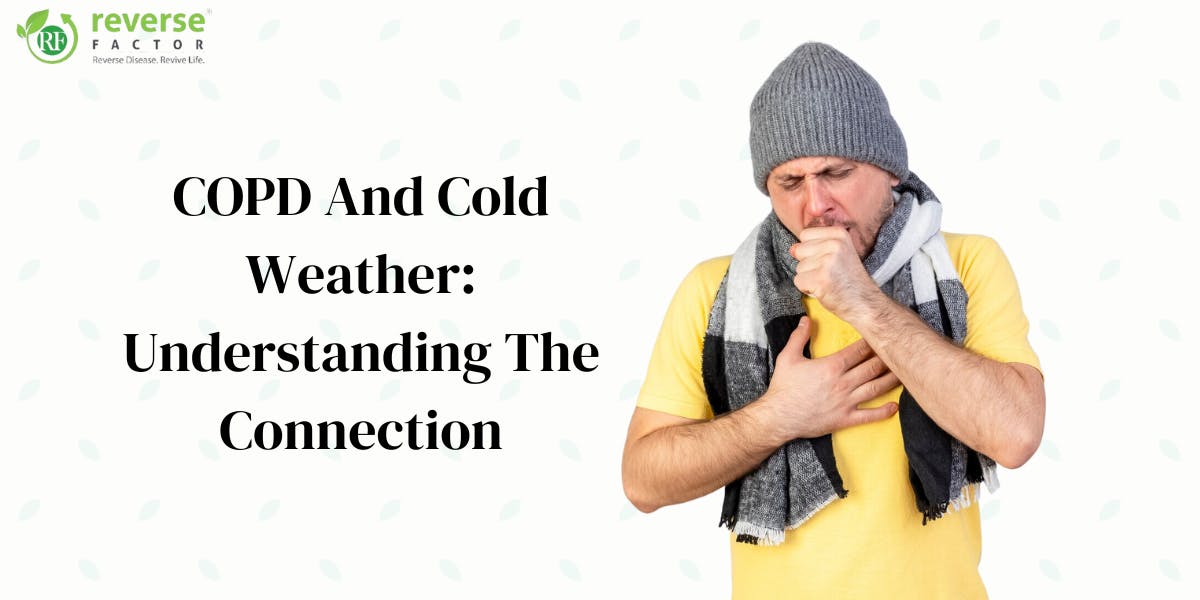Cold weather and freezing temperature can cause trouble for those having respiratory disorders. But winter can be more troublesome and challenging for people living with COPD. The symptoms of COPD may worsen in the cold weather season, making it more difficult to breathe and perform daily life activities. That doesn’t mean that you need to avoid stepping outside in the winter season. You can take preventive measures to manage your COPD in the winter season.
The risk of cardiovascular disease, such as heart disease and stroke, is higher in people with COPD. Cold weather can put additional strain on your heart which can result in a heart attack. You can prevent this situation by joining a heart disease reversal program that helps you to keep your heart active and healthy.
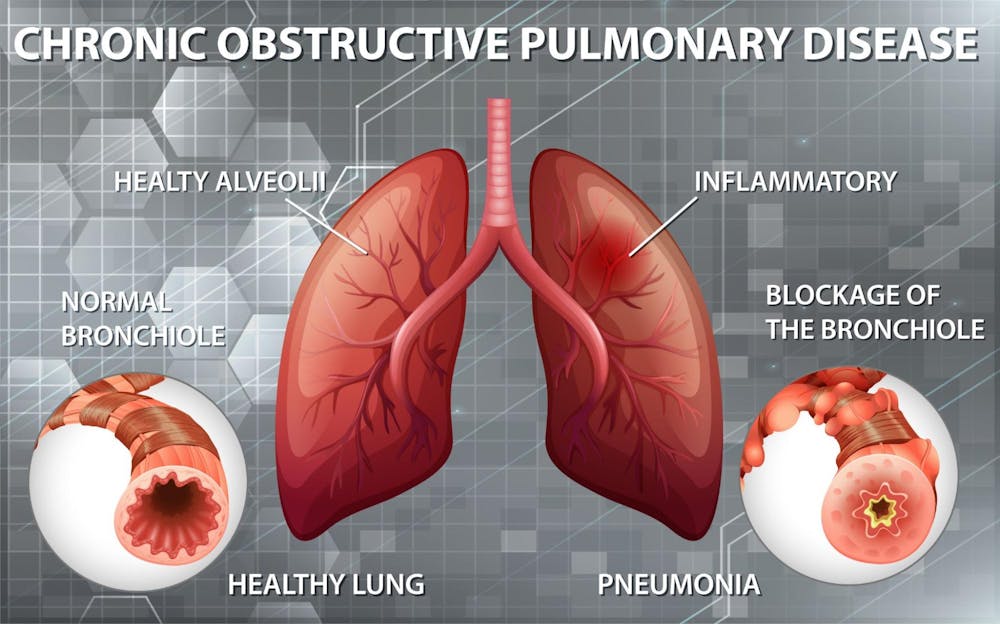
A healthy diet and exercise is recommended to manage your condition and overall health. Diet always plays an important role in the prevention and management of various chronic diseases. A fatty liver disease reversal program in India has improved the condition of many individuals by healing gut health naturally. Likewise, COPD can also be managed by taking the right steps toward health.
This blog will take a closer look at the link between copd and cold weather. You will also come to know why breathing in cold air causes respiratory problems for people with COPD. Continue reading this health guide to get some practical tips for staying healthy in winters.
Recommended: The Link Between Hormonal Imbalances and Mental Health
How Does Cold Weather Affect Copd?
Breathing in cold weather can be quite harmful to people living with COPD. Your airways become narrow and irritated when you breathe in cold air. It can make breathing considerably more challenging. Your body may struggle to warm the air before it enters the lungs, resulting in reduced oxygen levels and more difficulty in breathing.
Freezing air can cause contraction in your blood arteries which may result in high blood pressure. All these factors can work together to make COPD symptoms worse by leaving people exhausted and uncomfortable.
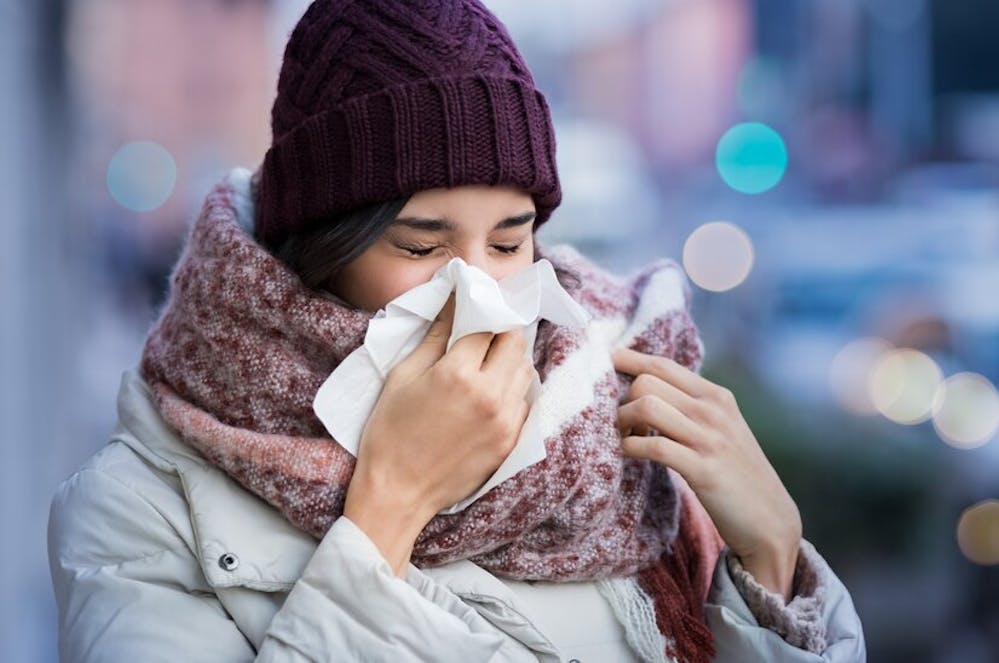
A dry atmosphere in the winter can reduce the moisture in your airways which irritates your lungs and causes inflammation. Thus, you must take extra precautions by wearing warm clothes and using a humidifier in your house to reduce the effects of cold weather on health.
Must Read: Understanding COPD: Symptoms, Causes, Complications, & Prevention
Cold Weather Effects On Copd Patients
Constricted Airways
When cold air is inhaled, it can cause the airways in the lungs to narrow, making it harder for people with COPD to breathe.
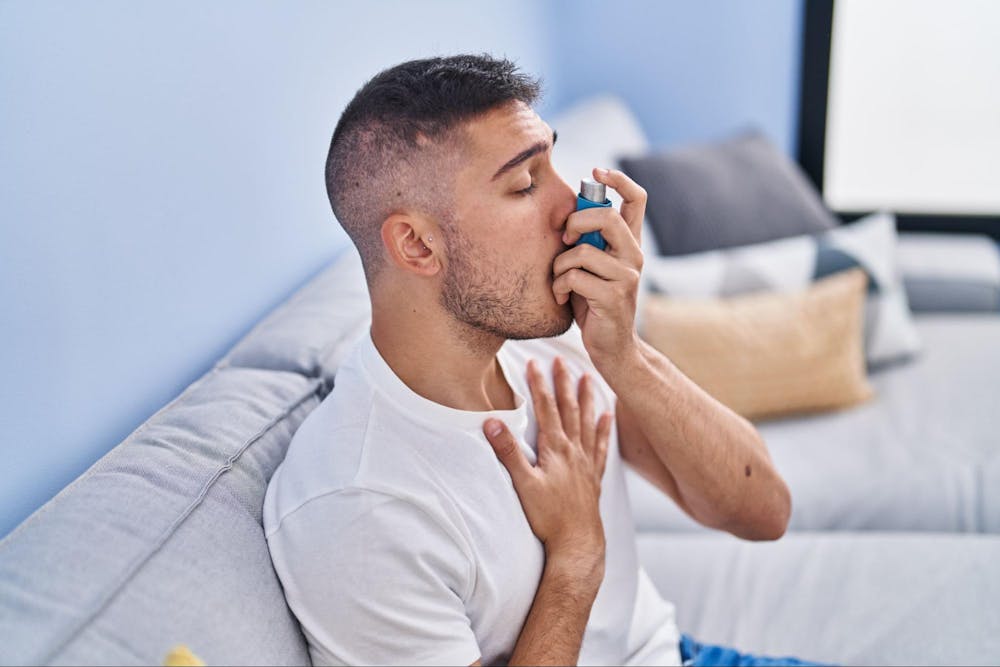
Increase Mucus Production
Cold weather can increase mucus production in the airways. It can exacerbate coughing and make breathing even more challenging.
Reduced Oxygen Levels
Breathing in cold air can reduce the quantity of oxygen that the body absorb which can lead to increased breathlessness and fatigue.

Increased Respiratory Infections
Cold weather can also increase the risk of respiratory infections like the flu and pneumonia, which can be harmful to COPD sufferers.
Increased Heart Problems
Due to blood vessel constriction brought on by cold weather season, blood pressure may rise and the heart may experience extra stress. This can be harmful to COPD sufferers who have reduced lung function.
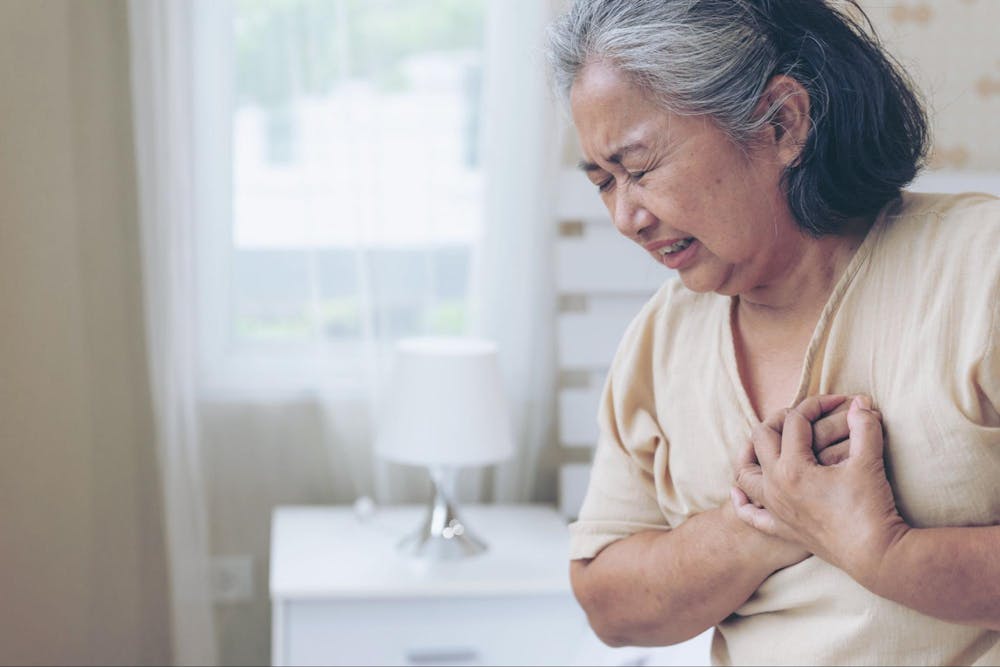
See More: COPD and Exercise: Tips for Staying Active By Reverse Factor
Some Helpful Tips For Staying Healthy In Cold Weather
1. Wear Warm Clothes
This is one of the primary steps to reduce COPD symptoms during the freezing weather in winter. Cold air can cause inflammation and irritation in the airways of the lungs. Wearing warm clothing, such as a hat, scarf, gloves, and can help you keep your body warm and prevent exposure to the cold.

2. Stay Indoor During Extreme Cold
COPD patients must stay indoors during periods of intense colds reduce their symptoms. When the temperature outside drops suddenly, the air gets chilly and dry. It can irritate your lungs and can result in wheezing, coughing, and shortness of breath. So, people with COPD should stay indoors for reducing the risk of developing these symptoms.

3. Use A Humidifier
Using a humidifier during the winter months can benefit COPD sufferers in many ways. Cold weather makes the air dry, which can irritate the lungs and make COPD symptoms worse. A humidifier can help add moisture to the air and reduce the dryness in the atmosphere. Thus, it reduces the possibility of symptoms like coughing, wheezing, and shortness of breath. A humidifier can also help loosen mucus in the airways, which reduces the likelihood of infection.
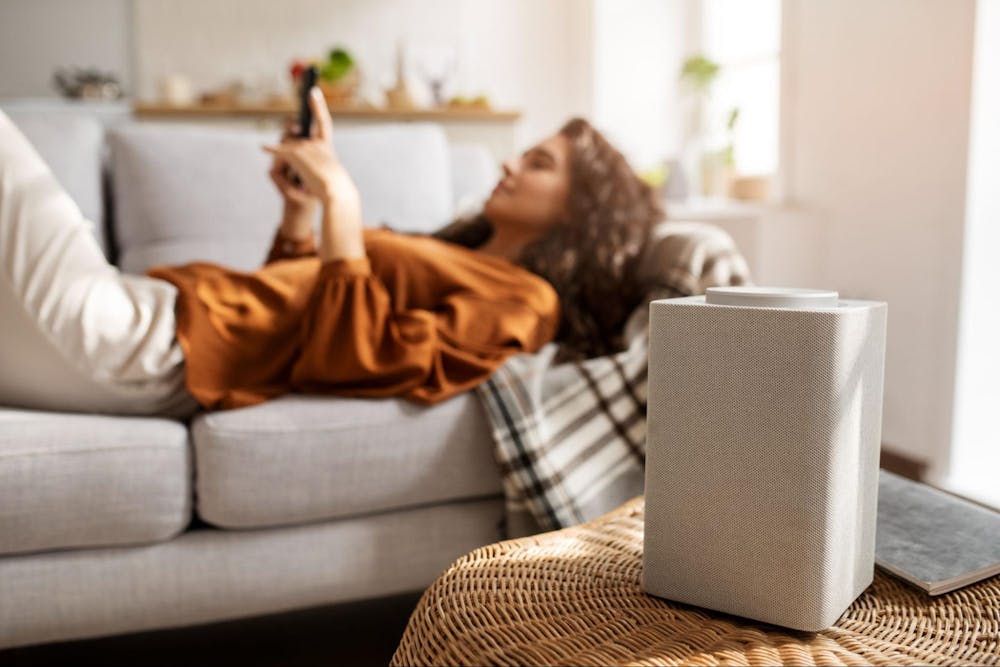
4. Avoid Smoke And Other Pollutants
When the smoke and other pollutants are present in the air during winter season, COPD sufferers are more likely to experience COPD symptoms. Smoke from things like cigarettes, fireplaces, and wood stoves can irritate and inflame your lungs. Other common pollutants such as dust, fumes, and allergens can also trigger respiratory symptoms in COPD patients. Therefore, you should avoid these pollutants to stay healthy during winter.

5. Use A Facemask
A face mask can help warm the air before it enters your lungs and reduces the possibility of respiratory irritation. It can further reduce the danger of respiratory issues by filtering the pollutants and allergens from the air.
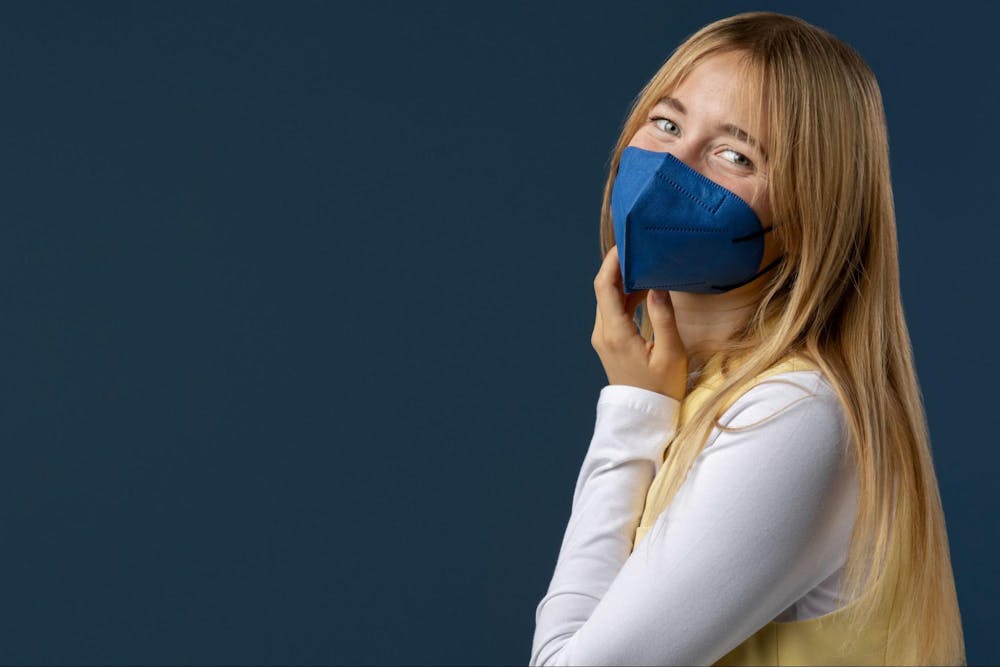
6. Do Breathing Exercises
COPD and the cold weather together make the life of COD sufferers problematic. But this condition can be controlled by practicing regular breathing exercises in the winter. Pursed lips, and deep breathing can strengthen the respiratory muscles. It also improves lung capacity, and reduce shortness of breath. These workouts can also improve your body's ability to absorb oxygen.

7. Follow A Healthy Diet
Patients with COPD can benefit a lot from eating a plant-based diet, especially in the winter season. Fruits, vegetables, and whole grains contain all the essential vitamins, minerals, and antioxidants. It boost your immune system, reduce inflammation, and improve the function of your lungs. A plant-based diet can also help with the management of other health issues, such as obesity, hypertension, and diabetes.

Final Thoughts –
There is a strong link between COPD and cold weather, but it doesn't have to be a cause for concern. You can reduce your COPD symptoms throughout the winter by taking preventative measures. You should practice breathing exercises, avoid air pollutants, and consume a healthy diet daily. Remember to consult a certified physician to get the best advice for your health condition. With the right care, every person living with COPD can enjoy the winter season and stay healthy and happy throughout the year.
Frequently Asked Questions –
1. Is COPD worse in the winter?
Yes, the winter can make your COPD worse. The cold temperature can irritate the airways, causing inflammation and increasing COPD symptoms.
2. What temperature is too cold for COPD?
Temperature below freezing and above 32 degrees Celsius is considered harmful for COPD patients.
3. Why is COPD worse in cold weather?
Cold air can irritate the airways, making them narrow and making breathing more difficult for COPD sufferers. The airways might become more inflamed in the cold weather, which can result in more serious symptoms.
4. What weather is best for COPD sufferers?
Generally, mild weather is typically ideal for COPD as it reduces airway inflammation and makes breathing easier.
5. Can cold weather cause a COPD flare-up?
Yes, cold weather can trigger a COPD flare-up because the irritated airways can become inflamed and difficult to breathe. The increased risk of respiratory infections due to cold weather can also cause a flare-up of COPD.
6. Can cold weather worsen COPD symptoms?
Yes, cold weather can worsen COPD symptoms, as the cold air can irritate the airways, making it harder to breathe.
7. What are some ways to prevent COPD exacerbations in cold weather?
Staying warm and dry, covering your mouth and nose with a scarf, in the cold season are all effective ways to prevent COPD symptoms.
8. Can people with COPD still exercise in cold weather?
Yes, people with COPD can still work out in the cold. COPD patients should take precautions before doing exercise, such as warming up, and covering their mouth and nose.
9. How to identify your COPD symptoms are getting worse in cold weather?
Increased breathlessness, coughing, wheezing, and tightness in the chest are signs that your COPD symptoms are getting worse.
10. Can using a humidifier help reduce COPD symptoms in cold weather?
Yes, using a humidifier can help reduce COPD symptoms in cold weather. It adds moisture to the air and preventing dryness, which can irritate the airways.
11. Is smoking the only cause of COPD?
No, smoking is not the primary cause of COPD, but other factors such as air pollution, and secondhand smoke can lead to the development of the disease.
12. Can people with COPD live a normal life?
Even though COPD can be a debilitating condition, you can still live a quality life by making some lifestyle changes.
